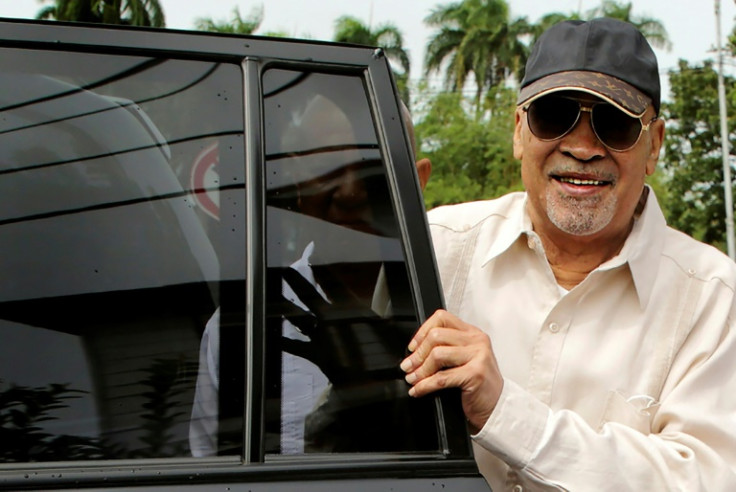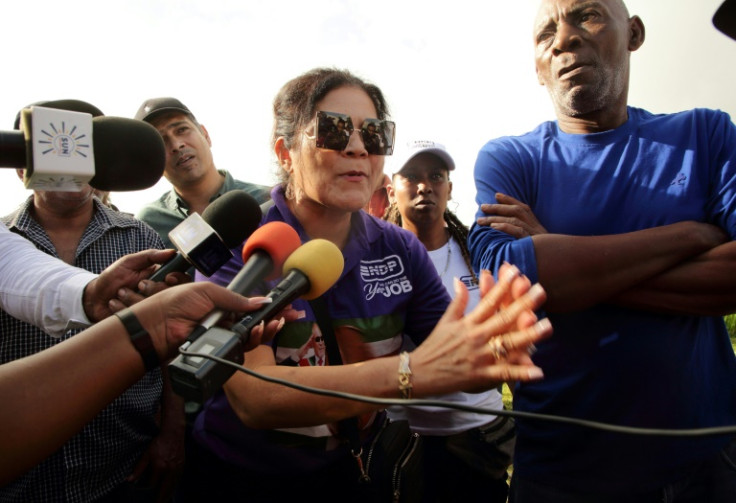
Suriname's ex-president Desi Bouterse, 78, on Friday refused to turn up to start serving a 20-year prison sentence for the murder of political opponents more than four decades ago.
Asked whether he planned to do so, his wife Ingrid Bouterse told journalists: "No".
"You all know that this is a political process and we are giving a political answer," she said.
In December, the South American country's highest court upheld Bouterse's 2019 conviction for the execution of 15 people -- lawyers, journalists, businessmen and military personnel -- in December 1982, two years after he took power following a coup.
Bouterse, a former strongman who led two coups and also served as an elected president of the former Dutch colony until 2020, had remained free awaiting the outcome of his case.
Bouterse and four others found guilty alongside him had been ordered to report to authorities on Friday.
Three of his four co-convicts, sentenced to 15 years each, showed up with their defense lawyer.
The country's prosecution office said it had "initiated the investigation process with regard to the convicted persons... who have not registered with the penal institution."
The justice ministry has built an isolated detention cell for Bouterse at the Suriname Military Hospital complex, some 10 minutes aways from downtown Paramaribo and near a hospital in case he needs medical treatment.
Supporters of Bouterse, who remains very popular, notably with the country's poor and working class, gathered at his house, singing and dancing to show their support.
"Bouterse is good where he is now," Ramon Abrahams, the deputy chairman of the former president's National Democratic Party (NDP), said earlier.
Asked where he was, he replied cryptically: "What I can say he is between the Atlantic Ocean, the Tumuk Humak Mountains, the Courantyne river and the Maroni river," referring to Suriname's border points.
Addressing some 200 party supporters, Abrahams said: "I urge you not only to keep a cool head but to pay close attention to what will happen in the coming days. Bouterse has indicated that he will not report to prison. The party fully supports him."
Bouterse staged a coup on February 25, 1980. Known for his eloquence, he initially acted as spokesman but soon took over the military regime, promoting himself to commander-in-chief and de facto ruler.
He has denied involvement in the 1982 killings, saying the victims had been held for plotting a counter-coup with the help of the CIA, and had been shot while trying to escape.
Bouterse stepped down in 1987 but returned to power in 1990 through a bloodless coup by making a simple phone call to the then-president.
In 1999, a court in the Netherlands, Suriname's former colonial ruler, sentenced Bouterse to 11 years in prison in absentia for cocaine smuggling, another charge he denies.
He was later elected and served as president of Suriname from 2010 until 2020, protecting him from extradition.








